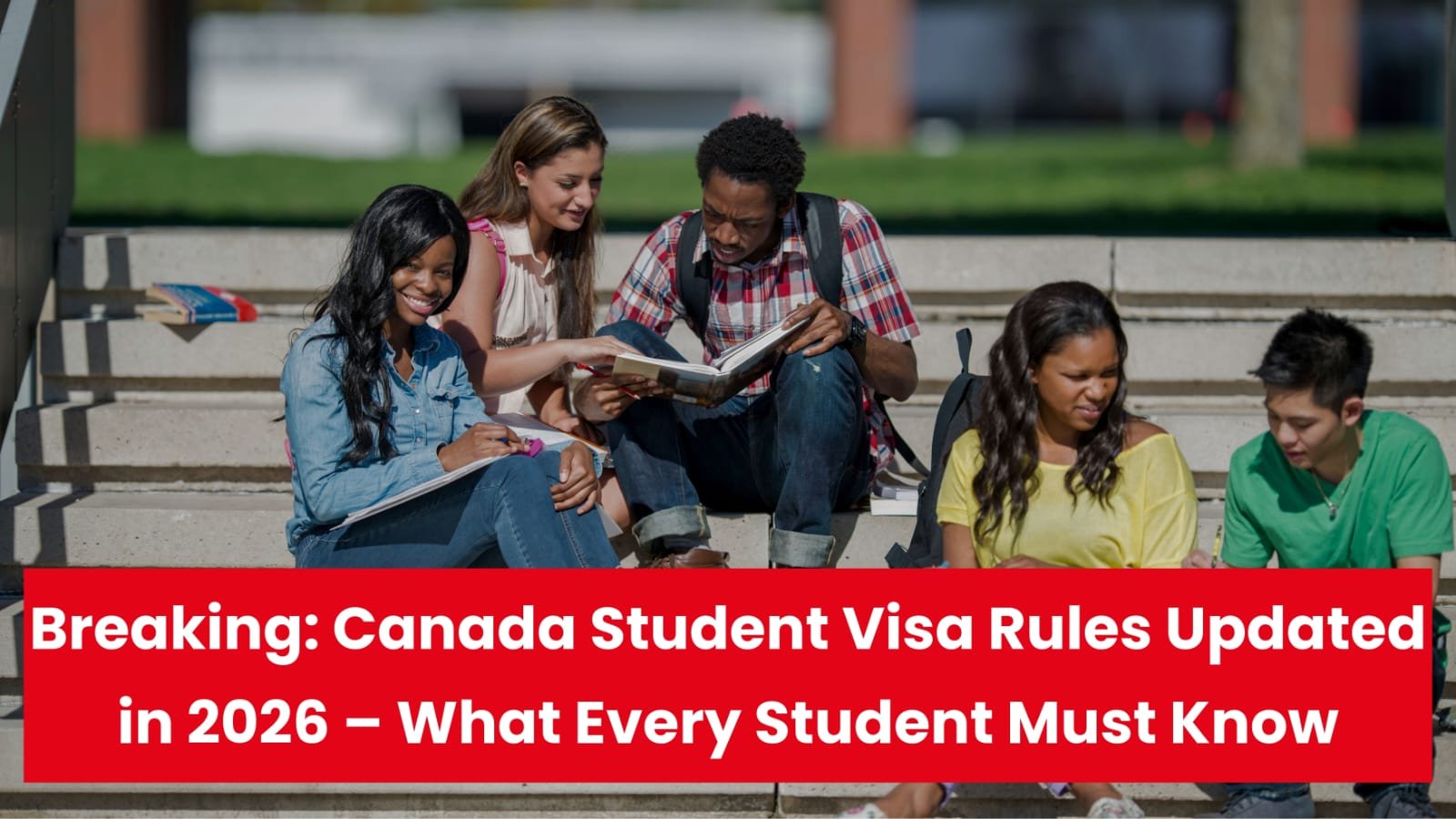Your obligations as a sponsor
When you agree to be a sponsor, you must sign an undertaking, promising to give financial support for the basic needs of your spouse or partner and their dependent children.
Basic needs are:
- food, clothing, shelter and other needs for everyday living,
- dental care, eye care and other health needs that aren’t covered by public health services.
Before signing the sponsorship agreement, ensure the family members you sponsor won’t need to ask the government for financial help. If they do receive assistance, you’ll have to repay the amount they got while you’re legally responsible for them. Additionally, you won’t be able to sponsor anyone else until you’ve paid back that amount.
The undertaking is a binding promise to support the person you sponsor. This means you are responsible for their financial support for the entire period of the agreement, no matter what happens. The promise remains in effect even if:
- The person you sponsor becomes a Canadian citizen
- You get divorced, separated, or your relationship with the sponsored person ends
- You or the person you sponsor move to another province or country
- You face financial difficulties
May I cancel my undertaking after it’s been approved?
If you change your mind after submitting the sponsorship application and undertaking, you must write us a letter and send it as an attachment through the IRCC Webform before a final decision is made. You can only withdraw the undertaking if we approve your request.
Length of undertaking
Your responsibilities as a sponsor begin as soon as the undertaking takes effect. If you change your mind after submitting the sponsorship application and undertaking, you must send IRCC a letter through the IRCC Webform before a final decision is made. Withdrawal of the undertaking is only possible if IRCC approve your request.
You’re sponsoring a spouse, common-law partner or conjugal partner
The undertaking lasts for 3 years starting from the day your spouse, common-law partner, or conjugal partner becomes a permanent resident.
You’re sponsoring a dependent child over 22 years of age
The undertaking lasts for 3 years from the day your dependent child (or the dependent child of your spouse, common-law partner, or conjugal partner) who is over 22 years old becomes a permanent resident.
You’re sponsoring a dependent child under 22 years of age
The undertaking lasts for 10 years from the day your dependent child (or the dependent child of your spouse, common-law partner, or conjugal partner) under 22 years old becomes a permanent resident, or until the child turns 25, whichever comes first. The duration of the undertaking for Quebec residents is slightly different.
Note: You’ll be in default if your relative gets social assistance from the government while the undertaking is in effect.
Become a sponsor
You can become a sponsor if you are:
- at least 18 years old
- a Canadian citizen, a person registered in Canada as an Indian under the Canadian Indian Act or a permanent resident,
- living in Canada:
- if you’re a Canadian citizen living outside Canada, you must show that you plan to live in Canada when your sponsored relative becomes a permanent resident.
- You can’t sponsor someone if you’re a permanent resident living outside of Canada.
- able to prove that you are not receiving social assistance for reasons other than a disability, and;
You must also be able to show that you can provide basic needs for:
- yourself,
- your spouse or partner,
- your spouse or partner’s dependent child(ren) (if applicable)
- your dependent child(ren) (if you’re sponsoring only your dependent child).
Note: Generally, if you are sponsoring a spouse, partner, or dependent child, there is no minimum necessary income (MNI) requirement. However, you must meet the minimum income requirement if the spouse or partner you’re sponsoring has a dependent child with their own dependent child, or if the dependent child you are sponsoring has their own dependent child. The income requirement is based on Statistics Canada’s annual Low-income Cut-Off (LICO).
If you live in Quebec, you must also meet Quebec’s conditions to be a sponsor.
Note: You remain eligible to sponsor if you receive maternity, parental, and sickness benefits under the Employment Insurance Act. These benefits are considered as income to meet the minimum necessary income (MNI) requirement.
You are still eligible to sponsor if you receive regular Employment Insurance and federal training allowances. Typically, these benefits are not considered as income for meeting the MNI requirement.
Important: For the tax years 2020 and 2021, a public policy was implemented allowing sponsors of all family class applicants who need to meet income requirements to include regular Employment Insurance benefits in their income calculations, rather than solely special Employment Insurance benefits.
You may not be able to sponsor if you…
- are sponsoring a spouse or partner but you signed an undertaking for a previous spouse or partner and it hasn’t been three years since they became a permanent resident,
- previously sponsored someone and did not pay back any social assistance that they received while the undertaking was in place.
- are in default on an immigration loan or a performance bond
- did not pay court-ordered alimony or child support
- have declared bankruptcy which has not been discharged
- were convicted of
- an offence of a sexual nature,
- a violent crime,
- an offence against a relative that caused bodily harm or
- threatened or attempted to commit any of the above offences—depending on the nature of the offence, how long ago it happened and if you received a pardon
- are sponsoring a spouse or partner and you were previously sponsored as a spouse, common-law or conjugal partner and became a permanent resident of Canada less than five years ago,
- are under a removal order,
- are in a penitentiary, jail, reformatory or prison,
- have already applied to sponsor your current spouse or partner and haven’t received a decision.
Sponsoring if you live outside Canada
If you’re a Canadian citizen living outside Canada, you can sponsor your:
- spouse,
- common-law partner,
- conjugal partner,
- dependent child.
You must show that you’ll live in Canada when the sponsored person becomes a permanent resident.
Defaults
You can’t become a sponsor if any of the situations below apply to you:
A previous sponsorship undertaking
If the family members you previously sponsored received social assistance or welfare during the validity of the undertaking, you cannot sponsor another individual until:
- You repay the entire amount of any social assistance or welfare payment, or
- You settle the debt to the satisfaction of the government authority that issued the benefit or directed you to make the payment.
An immigration loan
If you received a transportation, assistance, or right of permanent residence fee (previously called the right of landing fee) loan and have missed payments:
- You can’t sponsor if you are in default of your loan.
Support payment obligations
If you have been directed by a court to provide support payments to a spouse or child and have not fulfilled these obligations:
- You are ineligible to sponsor until you resolve the family support issue.
A performance bond
If you have committed to providing funds to ensure that an immigrant fulfills their obligations under immigration laws:
- You are unable to sponsor until you have paid the entire bond amount.
Five-year sponsorship bar for people who were sponsored to come to Canada as a spouse or partner
- If you were sponsored by a spouse or partner, you are prohibited from sponsoring a new spouse or partner within five years of obtaining permanent residency.
- This restriction remains in effect even if you become a Canadian citizen within that five-year period.
Are you eligible to sponsor someone?
- If IRCC received your sponsorship application before March 2, 2012:
The five-year sponsorship bar doesn’t apply, no matter when you became a permanent resident.
- If IRCC received your sponsorship application on or after March 2, 2012:
The five-year sponsorship bar applies. You may not sponsor a foreign national referred to as a spouse, common-law partner, or conjugal partner until you’ve been a permanent resident for five years.
Sponsorship bar for violent crime
The sponsorship bar prohibits individuals convicted of specific crimes from sponsoring a family member.
If you have been convicted of a crime resulting in bodily harm to any of the relatives listed below, you are ineligible to sponsor anyone under the Family Class or the spouse or common-law partner in Canada (SCLPC) class.
Note:
- “Partner” includes common-law and conjugal partners.
- Relatives not listed here may still fall under this category.
Relatives the sponsorship bar can apply to:
- your current or ex-spouse/partner and/or their children,
- your children,
- your parent/grandparent, child/grandchild, sibling, niece/nephew, aunt/uncle, or cousin, or
- the current or ex-spouse/partner and children of the above
- the parent/grandparent, child/grandchild, sibling, niece/nephew, aunt/uncle, or cousin of your current or ex-spouse/partner or children, or
- the current or ex-spouse/partner and children of any of the above
- your child’s spouse, partner or children,
- your spouse’s, partner’s or child’s ex-spouse or ex-partner and children,
- your partner’s parent/grandparent, child/grandchild, sibling, niece/nephew, aunt/uncle, or cousin, or
- the current or ex-spouse/partner (and their children)of any of the above,
- a foster child who is or was cared for by
- you,
- your current or ex-spouse/partner or their children,
- your parent/grandparent, child/grandchild, sibling, aunt/uncle or cousin, or
- the current or ex-spouse/partner (and their children) of any of the above, or
- your current or ex-boyfriend/girlfriend, their spouse or common-law partner, and their dependent children.
Who you can sponsor
With this application, you have the opportunity to sponsor your spouse, common-law partner, or conjugal partner who is at least 18 years old, or your dependent child (For sponsoring an adopted child, utilize the sponsorship package designed for adopted children). The individual you are sponsoring and their family members must successfully undergo background, security, and medical checks.
Choose the class of application
When sponsoring a conjugal partner or dependent child, you must apply under the Family Class, with processing conducted outside Canada. For sponsoring a spouse or common-law partner, you have the option to apply under either the Family Class or the Spouse or Common-Law Partner in Canada Class. When sponsoring a spouse or common-law partner, you must specify the “Class of Application” on the checklist provided. Apply under the Family Class if:
- The sponsored person resides outside Canada.
- The sponsored person currently lives with you in Canada but does not intend to stay in Canada during the application processing period.
- You plan to appeal if the application is rejected.
- You are sponsoring a conjugal partner or dependent child.
Apply under the Spouse or Common-Law Partner in Canada Class if your spouse or common-law partner:
- Resides with you in Canada.
- Holds valid temporary resident status in Canada or is exempt from requiring this status under a public policy.
Sponsoring your spouse, common-law partner or conjugal partner
These terms apply to couples of any gender.
If you are married, you can sponsor the person as your spouse if your marriage is legally recognized as a civil marriage.
Marriages will be acknowledged for immigration purposes under the following conditions:
- The marriage was legally conducted in Canada.
- If the marriage occurred outside of Canada, it must be legally recognized in both the country where it took place and in Canada.
Note: Marriages performed outside of Canada by proxy, telephone, fax, Internet, or other forms where one or both persons were not physically present at the ceremony are not recognized by IRCC.
If you’re in a common-law relationship
You can sponsor the person as your common-law partner (any gender) as long as you’ve been living or have lived with your partner for at least 12 consecutive months in a marriage-like relationship.
If you’re in conjugal relationship
A conjugal partner is defined as:
- Someone residing outside of Canada,
- Engaged in a conjugal relationship with the sponsor for a minimum of one year.
You may sponsor a conjugal partner if:
- There exists a substantial level of attachment between both parties, indicating more than just a physical connection but rather a mutually dependent relationship,
- You have been involved in a sincere relationship for at least 12 months, where marriage or cohabitation has not been feasible due to any reason.
Sponsoring your spouse or common-law partner who lives with you in Canada
You are eligible to apply under the Spouse or Common-Law Partner in Canada class if your spouse or common-law partner resides with you in Canada.
Your spouse or common-law partner must meet one of the following criteria:
- Possess valid temporary resident status, or
- Be exempt from requiring this status under a public policy established in 2005.
Under this public policy, individuals without temporary resident status can only be sponsored as spouses or common-law partners in Canada if they are inadmissible due to the following reasons:
- Overstaying a visa, visitor record, work permit, or student permit
- Engaging in unauthorized work or study activities
- Entering Canada without the required visa or documents
- Entering Canada without a valid passport or travel document (provided they obtain valid documents before being granted permanent residence)
If your spouse or common-law partner is inadmissible for other reasons, they are not covered by the public policy. In such cases, they should resolve the situation causing their inadmissibility before applying for permanent residence.
Your spouse or partner may be eligible for an open work permit.
Important Note: If your spouse or partner is currently employed or studying in Canada and wishes to prolong their stay, they must request an extension before their work or study permit expires.
Exiting Canada can result in the automatic termination of temporary resident status as a visitor, student, or worker.
If your spouse or common-law partner departs Canada before obtaining permanent residency, they may face difficulties returning, particularly if they require a Temporary Resident Visa or an Electronic Travel Authorization (eTA) to enter Canada.
In the event that your spouse or partner is unable to return to Canada, you must initiate a new sponsorship application from overseas.
Working and studying – spouses and common-law partners in Canada
If your spouse or common-law partner already has a work or study permit, they may continue to work or study as long as the permit is valid. It is illegal to work or study without authorization from IRCC.
Can my spouse, partner and accompanying dependent child work in Canada?
If your spouse or common-law partner already has a work permit, they may continue to work as long as the permit is valid.
Can my spouse or partner study in Canada?
If your spouse or common-law partner already has a study permit and wants to keep their temporary resident status as a student.
Sponsoring your dependent children
You can sponsor your dependent children outside Canada who meet the following definition:
Definitions of dependent children
Your child or the child of your spouse or common-law partner can be classified as a dependent child if they meet the following criteria on the day we receive your complete application:
- They are under 22 years old, and
- They are not married or in a common-law partnership.
Children who are 22 years old or older can still qualify as dependents if they satisfy both of these conditions:
- They have relied on their parents for financial support since before turning 22, and
- They are unable to financially support themselves due to a mental or physical condition.
Except for age, dependents must maintain these qualifications until we complete the processing of your application.
If your child’s age was locked in on or before October 23, 2017, a previous definition of dependent children may apply.
Important Note: If the individual you are sponsoring (or their child) has one or more children under the sole custody of their other parent, you must still include the child in the application. Even if there is a written agreement or court order indicating that the sponsored person lacks custody or responsibility, you must list the child on the application. Additionally, this child must undergo a medical examination and pass any relevant background and security checks.
This inclusion allows the sponsored person the opportunity to sponsor their child as a member of the family class in the future, should there be alterations to the custody or living arrangements. Failure to declare all family members on the application could jeopardize the permanent resident status of the individual.
The person you’re sponsoring has a child in the sole custody of a previous spouse. Do they need to include this child in their application?
Yes, Children under the custody of a former spouse or partner are recognized as dependent children.
Regardless of any written agreement or court order indicating the sponsored person lacks custody or responsibility, you must include the child in the application. The child must also undergo a medical examination and pass any relevant background and security checks.
This inclusion allows the sponsored person the opportunity to sponsor their child as a member of the family class in the future, should there be changes to custody or living arrangements. Failure to declare all family members on the application could result in the risk of losing permanent resident status.
Passports for family members
The person you are sponsoring and their accompanying family members must possess valid passports or travel documents upon arrival. It is essential to ensure that any documents nearing expiration are renewed promptly. The sponsored individual should provide copies of their new passport or travel document to the office handling the application.
If the passport of the sponsored person or their accompanying family members (if applicable) is renewed or replaced during the application process, you should notify us immediately to prevent any potential delays.
Please note that diplomatic, official, service, or public affairs passports cannot be used for immigration to Canada. The sponsored individual must have a valid regular or private passport upon arrival.
Note: The validity of a visa may be affected by the validity of the passport.
How long is a permanent resident visa valid?
A permanent resident visa is granted for a duration not exceeding the earliest expiration date of the sponsored person’s (and any accompanying family members’):
- Passports
- Medical examination results
- Admissibility assessment results
It’s important to note that once issued, permanent resident visas cannot be prolonged. If applicants fail to utilize the visas within their validity period, they must initiate a new immigration application to Canada. This entails the sponsor submitting a fresh sponsorship application and paying new processing fees.





